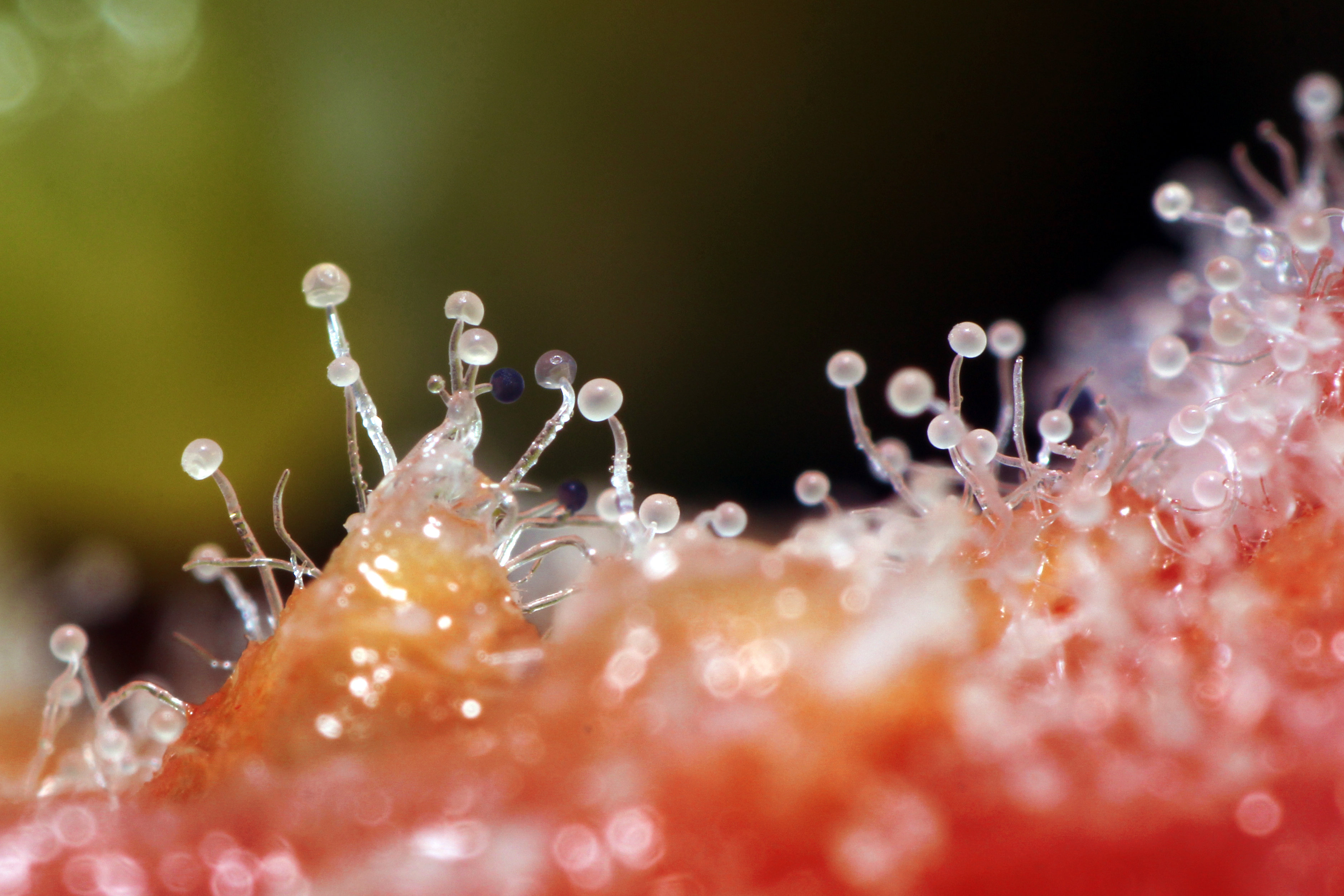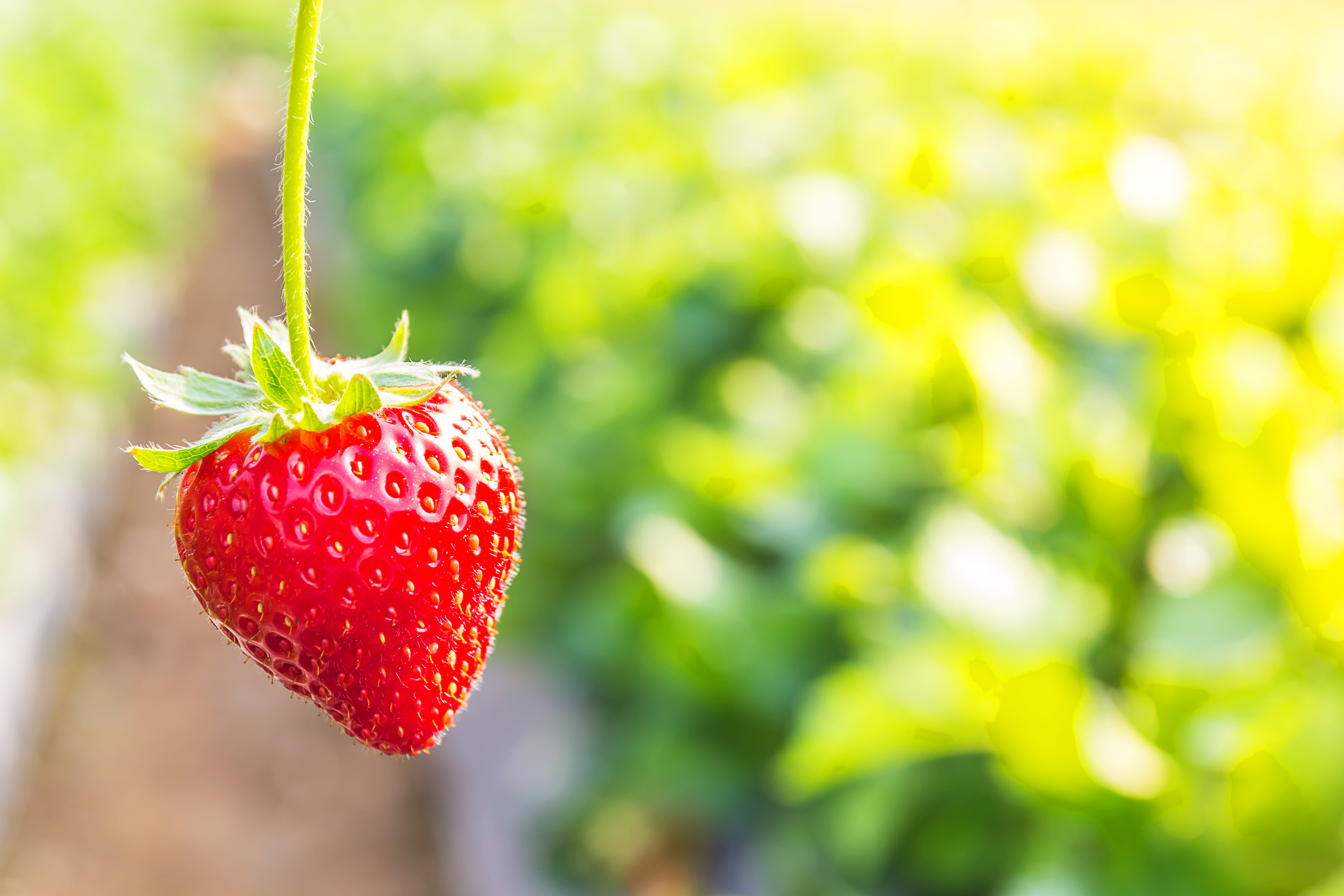Employee spotlight: Sowmya Ramachandran
What is your role at Invaio?
Sowmya Ramachandran (SR): I lead the fungicide discovery pipeline within the Research and Development division at Invaio. My role focuses on identifying and advancing new fungicide candidates, all the way from discovery to product development, to protect crops and support sustainable agriculture.
I'm passionate about solving real-world problems through science. In particular, I’m passionate about developing eco-friendly, sustainable crop protection solutions that reduce environmental impact while helping growers manage disease in a more responsible way. It’s incredibly motivating to know that the work we do can directly impact global food security and help farmers manage disease pressures more effectively. I also enjoy working as part of an interdisciplinary team, bringing together people from computational biology, formulation science to field development to tackle complex challenges and delivering impactful and innovative solutions
What are bio-fungicides, and how do they differ from other fungicides?
SR: Bio-fungicides are a class of natural crop protection products that are either microbes (bacterial or beneficial fungi) or molecules derived from nature, such as plant-based compounds or microbe-derived molecules. They help combat fungal diseases by various mechanisms, such as directly killing specific harmful fungi, boosting plant immune responses, or other mechanisms, including outcompeting the harmful fungi and releasing antimicrobial substances, as seen in the case of microbials.
What makes them more attractive to traditional chemicals is their applicability in sustainable agriculture. Because they’re derived from nature and tend to break down quickly, they usually have a lower environmental impact, minimal off-target effects, reduced risk with resistance due to their complex mode of action and can support soil health and nutrient cycling in some cases. However, they are not perfect. They typically present challenges, such as a shorter shelf life, variable efficacy under different environmental conditions, and often a narrower spectrum of activity compared to synthetic chemicals.
Despite these challenges, bio-fungicides remain crucial for sustainable agriculture. Scientists and companies, such as Invaio, around the world are working towards bridging the gap between chemical fungicides and bio-fungicides, as the environmental benefits of these natural solutions ultimately outweigh their challenges. Farmers are also increasingly adopting biological products, as they recognize the problems associated with chemical overuse and the growing demand for safe, environmentally friendly food production methods

How do peptides play into bio-fungicide development?
SR: Peptides, which are short chains of amino acids, represent one class of bio-fungicides. They can be derived from natural sources such as plants, animals, or microbes, or synthetically designed using computational tools. The power of peptides lies in their versatility: their diverse modes of action and programmability enable them to be tailored to specific plant health challenges, much like chemical fungicides. Yet, because their building blocks are rooted in nature, they offer a more sustainable path forward.
Farmers need solutions that are not only effective and affordable but also adaptable to their unique crops, regions, and disease pressures. There is no one-size-fits-all in agriculture. Peptides offer the precision and flexibility required to address a wide range of agronomic problems while supporting the transition to safer, more resilient farming systems.
What is currently on your dev pipeline?
SR: Our fungicide pipeline is focused on developing next-generation antimicrobial peptides (AMPs) as biologically derived alternatives to conventional chemical fungicides. These peptides are either naturally occurring or designed using AI-guided optimization to enhance their efficacy, environmental stability, and production yields. We currently have three distinct classes of peptides in our pipeline, each with its own unique mode of action and design strategy. However, following our acquisition of Peptyde Bio, we are currently focusing on a naturally occurring class of peptides called defensins for targeting several high-value fungal pathogens, including Botrytis cinerea, Fusarium spp., Septoria blotch, Asian soybean rust, and certain oomycetes.
Our testing pipeline filters hundreds of candidates down to a select few leads that consistently perform across lab, greenhouse, and early field conditions. Our first field trials with two lead candidates, conducted earlier this year, demonstrated performance that exceeded existing biological standards. As we continue to optimize and improve these leads, we are already seeing even stronger candidates emerging from our discovery engine. Overall, we're very excited about the potential of these peptides to become effective, scalable products for sustainable fungal control.
How do you see the “fruits” of your work playing out in the future?
SR: We envision the impact of our work unfolding in multiple ways. At our core, we're focused on delivering solutions that are both effective for farmers and sustainable for the environment. By exploring the untapped potential of peptides—their diverse modes of action, novel formulation strategies, and computationally guided design—we're pushing the frontier of what biological products can achieve in agriculture. This includes blending disciplines such as AI, protein engineering, and synthetic biology to develop tools that are precisely tailored to today’s crop protection challenges.
Beyond product development, our work is also contributing to the broader scientific and regulatory frameworks that will shape the future of bio-fungicides. By learning what works, what doesn’t, and why, we’re generating insights that will benefit not just our own pipeline but the wider agricultural community. Ultimately, we hope our efforts will lead to nature-positive crop health solutions, and—quite literally—healthier “fruits”.


Sowmya Ramachandran is a plant pathologist with expertise in fungicide discovery, plant-microbe interactions, molecular plant pathology, and agricultural research. As the Fungicide Indication Lead at Invaio, she focuses on guiding the selection and advancement of fungicide candidates, contributing to the development of innovative and sustainable solutions for crop disease management.
Sowmya earned her Ph.D. in Plant Pathology from Washington State University (WSU), where she built a strong foundation in plant-microbe interactions and molecular plant pathology. She continued her research as a postdoctoral fellow at WSU, further deepening her expertise in agricultural disease research.
Following her time at WSU, Sowmya worked as an ORISE Postdoctoral Researcher at the US Department of Agriculture (USDA) within the Foreign Disease-Weed Science Research Unit, where she focused on host-pathogen interactions and disease biology of foreign plant pathogens, with an emphasis on Asian soybean rust.
In addition to her scientific research experience, Sowmya also served as a Technology Licensing associate and Commercialization Coordinator at WSU, where she supported patent evaluation and business development activities to help advance agricultural innovations from research toward market impact.
She is passionate about translating scientific discovery into practical solutions for growers and contributing to sustainable agriculture through science-driven innovation.
Sowmya Ramachandra (SR)
Senior Scientist @Invaio Sciences

